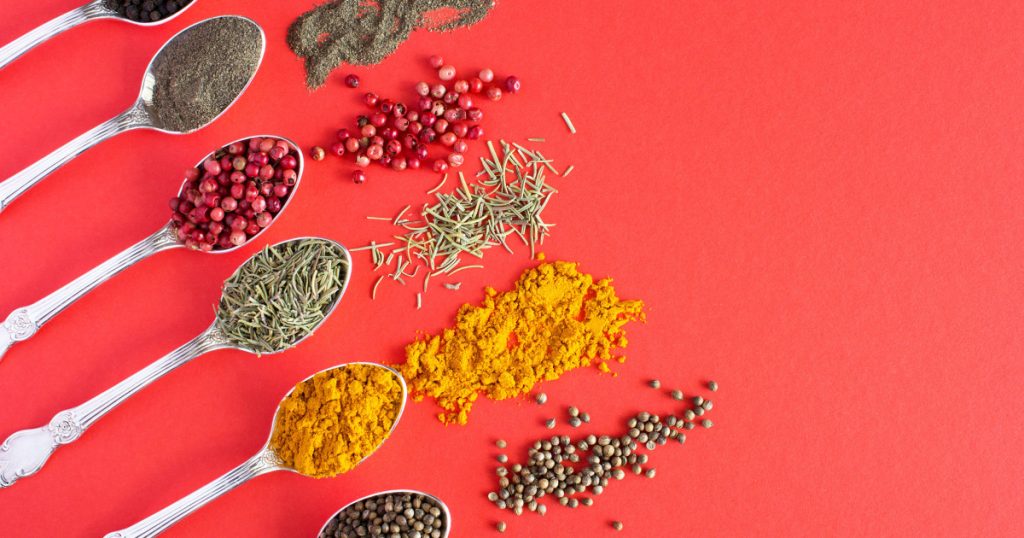Eating healthy doesn’t have to be boring, and the right seasoning can make any meal delicious. Many herbs and spices not only add flavor but also provide essential nutrients for our health. Adding herbs and spices to food is a great way to enhance flavor without increasing the intake of sodium, sugar, or calories, notes dietitian Natalie Rizzo. Excessive consumption of salt can lead to high blood pressure and increase the risk of heart disease and stroke. By using herbs and spices to season food, individuals can avoid the negative health effects of too much salt.
Turmeric is a popular herb recommended by dietitians for its health benefits. It contains an active compound called curcumin, which has antioxidant and anti-inflammatory properties. Turmeric has been traditionally used in Ayurveda and other traditional medicine systems and has been linked to better joint and brain health. Ginger is another powerful seasoning with digestive benefits due to its active compounds. Gingerol, found in ginger, is known for reducing nausea, improving motility, and reducing inflammation. Garlic, an herb-like bulb vegetable, has antioxidant and antibacterial properties that can boost immunity and support heart health, among other benefits.
Cinnamon is a versatile spice that adds complexity to sweet and savory dishes. It has antioxidant and anti-inflammatory properties, and some evidence suggests it may help lower blood sugar levels and improve insulin resistance. Basil, which is rich in vitamin K and antioxidants, can promote bone strength, support blood clotting, and protect cells against free radical damage. In addition to basil, other herbs like rosemary, thyme, parsley, cilantro, and sage also offer health benefits. These herbs can be used in fresh or dried form to flavor a variety of foods while adding essential nutrients.
It is essential to be cautious of prepackaged seasoning blends, as they often contain high levels of sodium and sugar. Reading the nutrition labels and ingredient lists is crucial to avoid unhealthy seasonings. Seasoning blends like seafood seasoning, creole seasoning, cajun seasoning, chili seasoning, and taco seasoning can be high in sodium and sugar. People with high blood pressure, kidney disease, heart failure, diabetes, pre-diabetes, insulin resistance, obesity, or impaired fasting glucose should be mindful of their salt and sugar intake when using seasonings. Opting for low-sodium or sodium-free seasonings and making homemade spice blends can help individuals control the ingredients they consume.
In conclusion, seasoning food with herbs and spices is a healthy way to enhance flavor and boost nutrient intake without relying on excessive salt, sugar, or additives. Turmeric, ginger, garlic, cinnamon, basil, and other herbs offer a wide range of health benefits, from reducing inflammation to supporting immunity and heart health. Choosing the right seasonings and being cautious of prepackaged blends can help individuals maintain a healthy diet while enjoying flavorful meals. By incorporating herbs and spices into daily cooking routines, individuals can elevate the taste of their dishes while supporting overall health and wellness.













